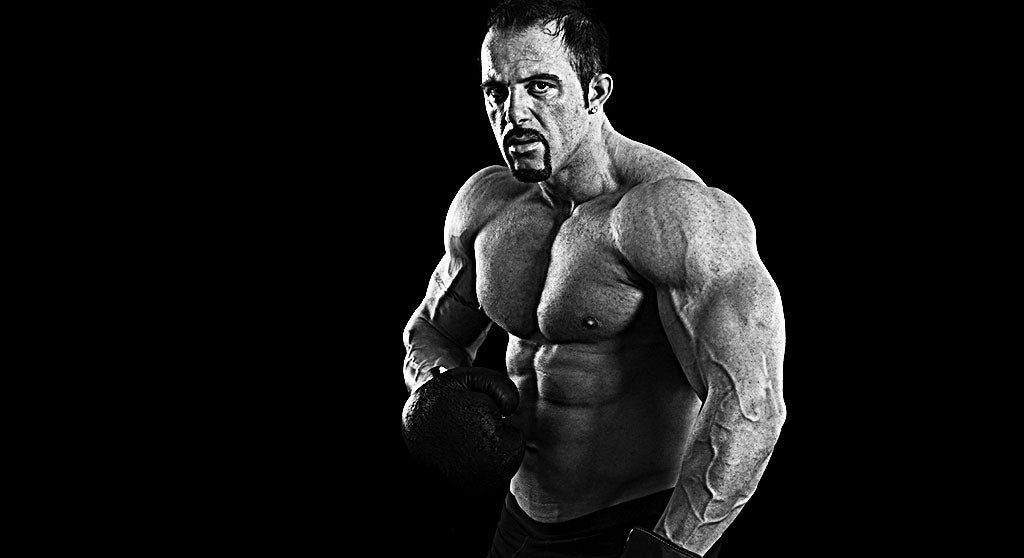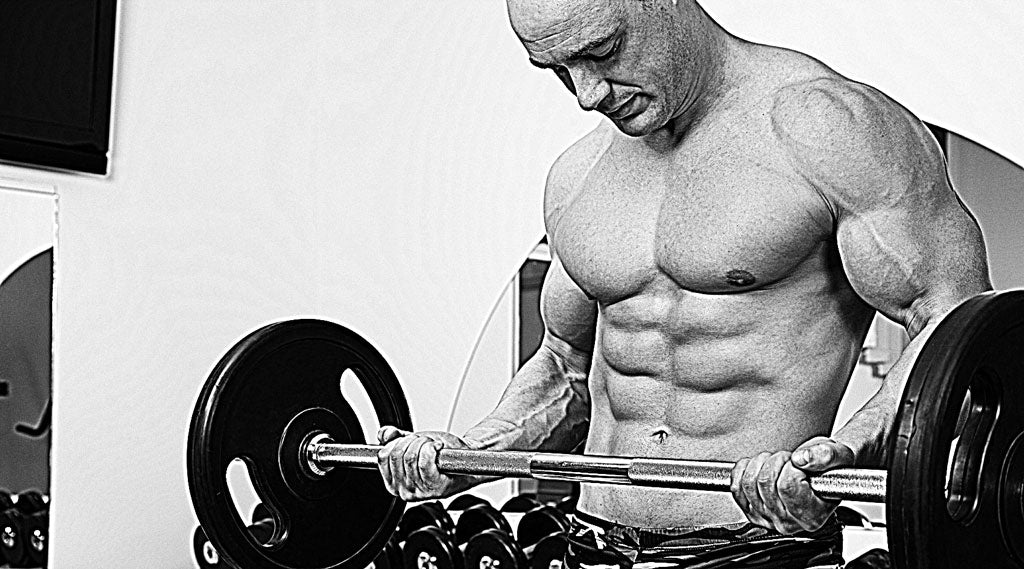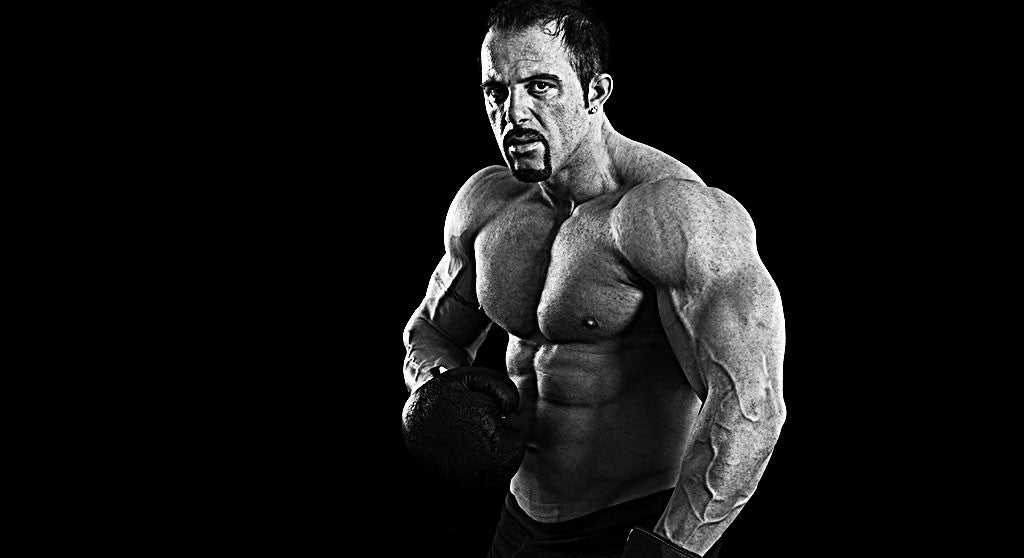
"Everybody has a plan until they get punched in the mouth." This famous quote by legendary boxer Mike Tyson was used to illustrate the reality which usually befell the approach and strategy of his opponents in the ring. They all had detailed and complex plans for how they were going to outmaneuver, outpunch, and outsmart him in the ring and win the fight. Then, they took that first powerful punch from Iron Mike, and all of that went out the window. It's like that in war, as well as many other situations in life. Everything looks good on paper until you dive in. And then, everything changes…
Dieting down to lose body fat and better display your muscle is no different. On paper, there is no doubt that it looks like everything you need. Caloric reduction, choosing the right foods, and you'll drop the body fat while keeping the muscle. It's a good plan - until you get hit - and the results don't appear just as your strength and energy levels plummet. It happens to most athletes as they embark upon their first few pre-contest diets, so don't fret if it is happening to you. Let's take a look at a few reasons why your body may not be responding to your bodybuilding diet like you desire.
Eating a few more calories than you realize
Many years of research prove what most diet coaches know already - people tend to greatly under-estimate the total number of calories they are eating each day. They ignore small "low-calorie" options altogether, and grossly miss the mark on just how large their dining portions measure. If you're going to be counting calories, you should take the subjectivity out of things and use a measuring cup or gram scale for every bit of food that goes into your mouth. There are some very capable smart phone apps out there which you can use to accurately ascertain about how many calories you are eating each day. Gone are the days of adding up a bunch of 100s and 200s to vaguely estimate how many calories you are consuming. The tech is there today - use it!

The wrong weight loss rate
When most people begin a diet, they will lose 2 to 5 pounds in that first week. This is mostly due to water weight falling from their body. They are cutting back their sodium and carb intake, so they will no doubt experience a few pounds' loss in the first few days of a diet. As a result, they will likely decide they plan on losing 2 to 3 pounds EVERY week. And unless they're burning up their muscle and feeling quite miserable all of the time, this kind of weight loss isn't going to happen. Remind yourself that .5 to 1.5 pound of weight loss a week is plenty. Any more than that and your calories are likely too low. This is going to damage your training efforts and leave you feeling terrible too.
Lack of flexibility
Life is going to throw a lot of curveballs at you. Schedule changes, holiday meals, work events, and just plain unpredictability in general. That's okay - as long as you plan for it. You know that 8 oz of turkey isn't that different from 8 oz of chicken in terms of your diet, and you know that a bowl of Doritos is WAY different than a bowl of sweet potatoes, even if the calories are similar. Avoid those diets which don't give you any flexibility at all. Employ common sense and make the right choices about how to adapt to variations without breaking the diet you're working so hard to which to adhere.
Running the latest fad diet
 When you're looking to analyze the results of your fat loss efforts, you should employ several different methods. The scale is nice, but it won't record how you look, or just how much of the weight you are losing is fat versus muscle. If you have access to a body fat measuring system such as calipers or even water displacement, you should certainly be using it. Otherwise, stick to measurements, the mirror, and plenty of timed pose "selfie" shots to measure your weekly progress. You will become very perceptive to even the smallest changes in your physique as that fat starts to burn off.If you spend any amount of time online reading about topics such as fitness, exercise, and nutrition, then you have no doubt seen the many fad diets come and go over the years. This isn't to say many of them aren't effective. Paleo, Atkins, Gluten-free, HCG diet, and many others have been highly popular, selling millions of books and of course, helping many people lose a lot of weight. However, the fact they are knew also means they are untested on many people. Therefore the results seen by those who use them may be wide-ranging and often still unpredictable.
When you're looking to analyze the results of your fat loss efforts, you should employ several different methods. The scale is nice, but it won't record how you look, or just how much of the weight you are losing is fat versus muscle. If you have access to a body fat measuring system such as calipers or even water displacement, you should certainly be using it. Otherwise, stick to measurements, the mirror, and plenty of timed pose "selfie" shots to measure your weekly progress. You will become very perceptive to even the smallest changes in your physique as that fat starts to burn off.If you spend any amount of time online reading about topics such as fitness, exercise, and nutrition, then you have no doubt seen the many fad diets come and go over the years. This isn't to say many of them aren't effective. Paleo, Atkins, Gluten-free, HCG diet, and many others have been highly popular, selling millions of books and of course, helping many people lose a lot of weight. However, the fact they are knew also means they are untested on many people. Therefore the results seen by those who use them may be wide-ranging and often still unpredictable.
There's nothing wrong with running a "new" diet, as long as the science is sound and you truly understand the reasoning behind it. You should just be careful starting any diet which is hotly trending but a little light on science. You may end up becoming a guinea pig for a diet which hasn't yet been tested by the sports industry in general. This is fine if you're just a fitness enthusiast looking to lose a little fat. However, if you're a competitive athlete needing to peak for a particular show date, then a fad diet could end up leading your to missing your peak in time!
Most diets are simple, and effective when you keep them simple. Burn more calories than you consume. Enjoy the use of highly effective fat-burning supplements. Knock out your daily cardio and keep moving those heavy weights. Be patient and the fat will melt away. However, it never goes entirely to plan, so you must always work to be flexible, optimistic, and observant in your efforts to lose body fat. Good luck!


